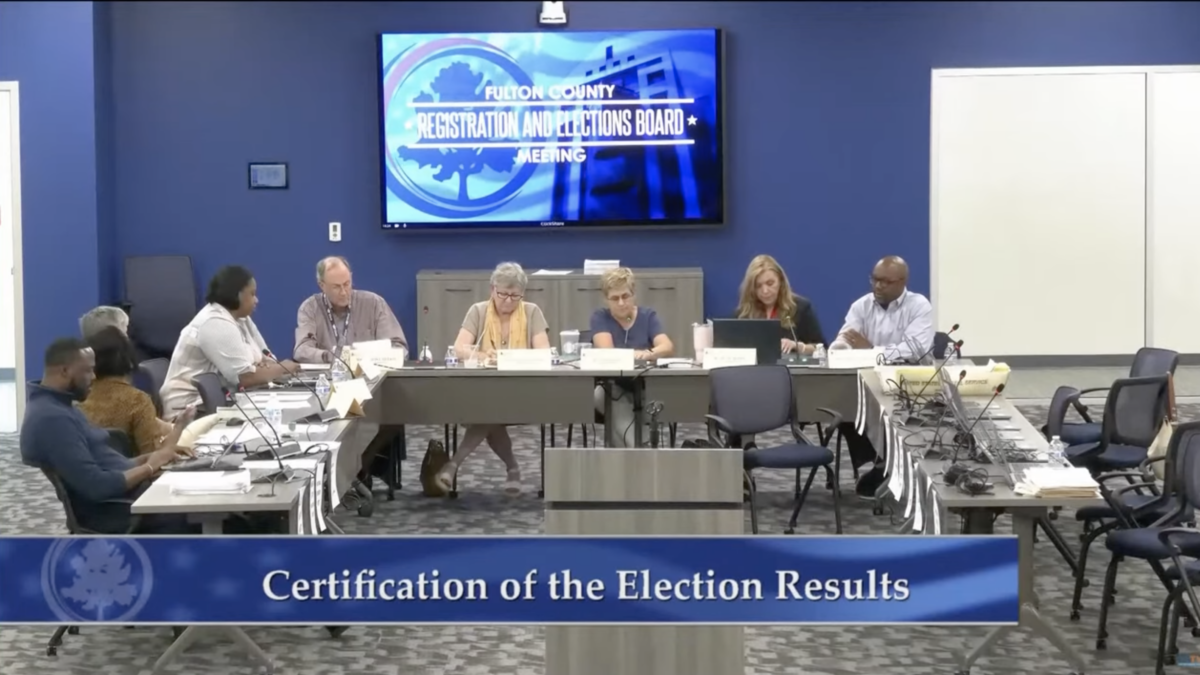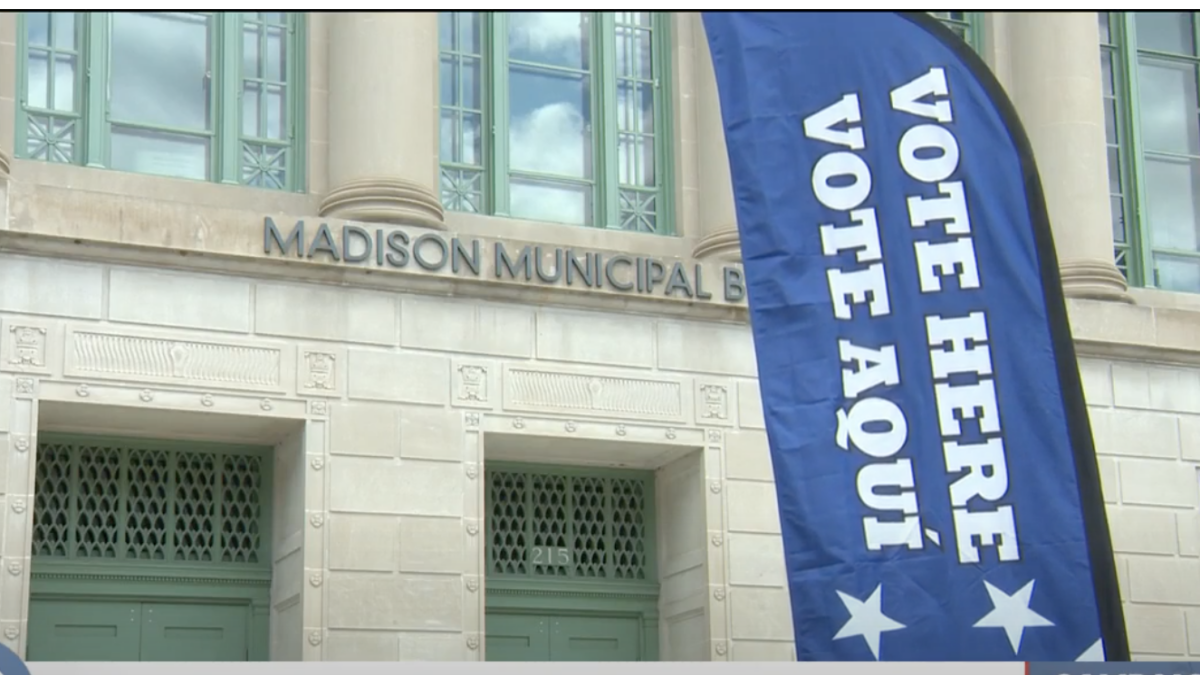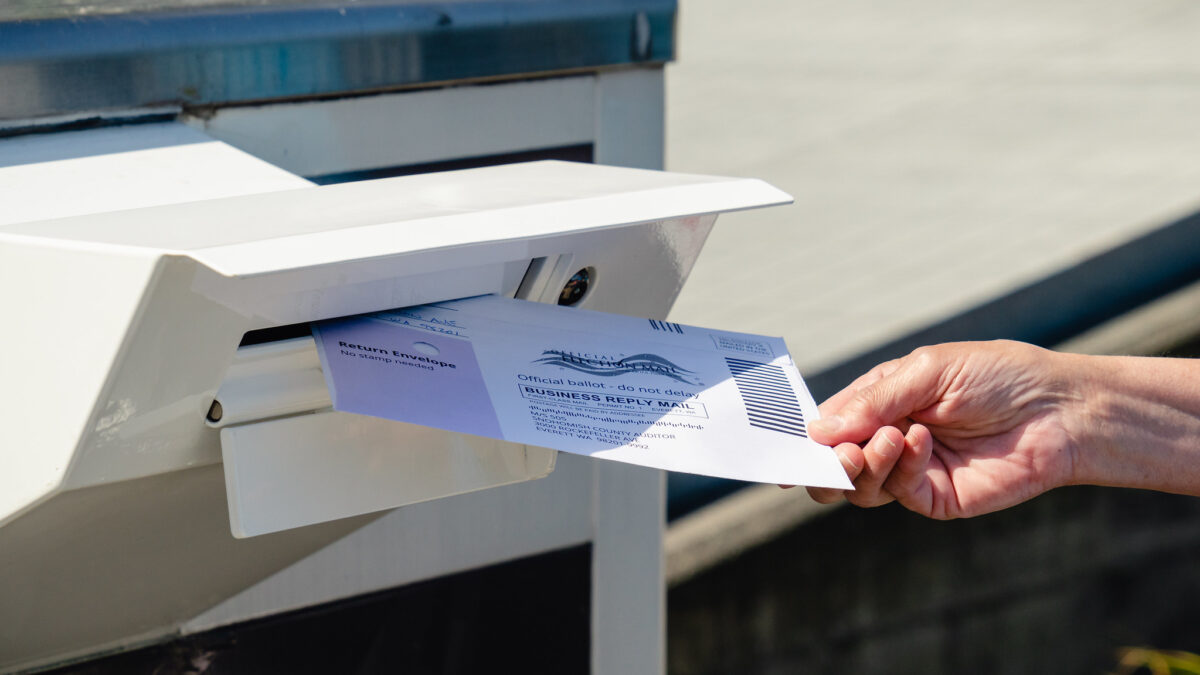Election board members are elected to oversee elections. As part of that job, Julie Adams, a member of Fulton County, Georgia’s elections board, asked for access to election data before certifying the results of the state’s March presidential preference primary. According to Adams, the elections director refused to provide that information, so without all those facts in front of her, Adams did not vote to certify the election.
Ten days later, the Democrat Party of Georgia sent a letter to Adams and the rest of the board threatening that she could be subject to criminal charges for her decision.
The letter warned Adams and other board members they should “approve certification of Fulton County’s election results going forward, and in particular for the remaining elections that will be held in 2024, to avoid unnecessary legal challenges and disputes.”
Adams filed a complaint requesting emergency relief and contending that, as a board member, she is within her rights to withhold certification of an election when she has not been given access to election data and material needed to fulfill certification duties.
Filed the day after Georgia’s May primary, Adam’s complaint urged the court to rule quickly because, “based on her current lack of access to Election Materials and Processes, Plaintiff will be unable to fulfil her statutory duties to certify the accuracy of the May 21, 2024, Primary Election.” With the case still unresolved, Adams declined to certify the May election.
Instead of quickly putting to rest the idea that an elected official could be prosecuted for exercising her elected position, the Fulton County courts have kept the case in limbo, possibly through the November election.
Georgians Head to Polls for Presidential Preference Primary
Georgia held its presidential preference primary on March 12.
Five days before the preference primary, Adams requested the qualified voter list, the voter check-in list, drop-box ballot recap sheets, and other election-related documentation she said she needed to fulfill her duties before certifying an election, according to her complaint. Election Director Nadine Williams told Adams that same evening that most of the requested documentation would not be available until after the election itself but that “review of these documents is not required for certification,” the complaint further alleges.
On March 19, having not received any of the requested documentation, Adams voted not to certify the results of the election. Ten days later, the Democratic Party of Georgia sent a letter to Adams and the other four members of the Fulton County Board of Registration and Elections, claiming certification is purely a “ministerial” task and that refusing to certify an election could be punished by criminal charges.
“Ultimately, if a member of the Board of Elections either ‘willfully neglects’ or ‘refuses to perform’ their statutory obligations, they ‘shall be guilty of a misdemeanor,'” the letter warned, citing O.C.G.A. § 21-2-596.
What’s the Point of a Board with No Discretion?
Superior Court of Fulton County Judge Ural Glanville recused himself from the case of Adams’ complaint in June, and the case has still not been reassigned. The question before the court is simple. Is Adams’ role discretionary — meaning she and other members are elected to evaluate an election, to certify its results when they are confident it was administered lawfully, and to withhold certification when they are not? Or is it ministerial — meaning she and other members must rubber-stamp the results of an election no matter what concerns they have about its administration?
Georgia Democrats, reflecting a nationwide push by Democrats to neuter local election boards, seek to redefine Adams’ role as the latter. But Adams insists she was elected to do the former.
Adams’ complaint cites the Authorization Act, which gives the Board of Registration and Elections (BRE) “the powers and duties of the election superintendent relating to the conduct of primaries and elections.”
“[T]he statutory role of election superintendent assigned to the BRE by Georgia law cannot be delegated in its entirety [away from the board and] to the Director” of elections Nadine Williams, the complaint reads, arguing that the “Plaintiff’s duties are, in fact, discretionary.”
Some of the “powers and duties” outlined for the superintendent, under state statute, include the power to “inspect systematically and thoroughly the conduct of primaries and elections … to the end that primaries and elections may be honestly, efficiently, and uniformly conducted.” One way to carry out the duty of “computation, canvassing, tabulating, and certification,” as the suit notes, includes the superintendent comparing “the registration figure with the certificates returned by the poll officers.”
The complaint also cites Fulton County Local Act § 14-32, “[c]onsistent with the Authorizations Act,” which vests the BRE with the “powers and duties of the board of registrars relating to the registration of voters and absentee balloting procedures.”
But Williams, as described in the complaint, allegedly told Adams that “her requests for supporting documentation relative to election results are unnecessary because the Director’s summaries are submitted to a ‘rigorous validation process’ and should simply be trusted.”
“Without the ability to confirm the accuracy of the returns and the ability to observe and inspect the various election processes in Fulton County, Plaintiff voted against the certification of election results” in the March preference primary, the complaint continues.
What’s Next?
By slow-walking Adams’ case, the Fulton County judicial system has failed to provide elected officials any assurance that they can do their jobs as they see fit without fear of the prosecutions threatened by Georgia Democrats. If left unresolved, the issue will almost certainly create a chilling effect on election officials who may have concerns about the certification of the upcoming election on Nov. 5.
Fulton County in particular was recently chided by the Georgia State Elections Board for violating the law during the 2020 election after it found more than 3,000 ballots were scanned twice during the recount. Two Republican members of the Fulton County Elections Board at the time did not vote to certify the election, as explained by The Federalist’s Editor-in-Chief Mollie Hemingway in her best-seller Rigged: How the Media, Big Tech, and the Democrats Seized Our Elections. The county was also reprimanded after it failed to count 1,326 votes during the 2022 primary. The county fixed the error and the election was “recertified,” according to the Atlanta Journal-Constitution.
On Tuesday, the Georgia State Election Board ruled in a 3-2 vote that county election board members are entitled to a “reasonable inquiry” into election discrepancies before certifying the results of an election. It is unclear whether this rule impacts Adams’ case.
Williams told The Federalist the county does not “comment on matters pending litigation.”









